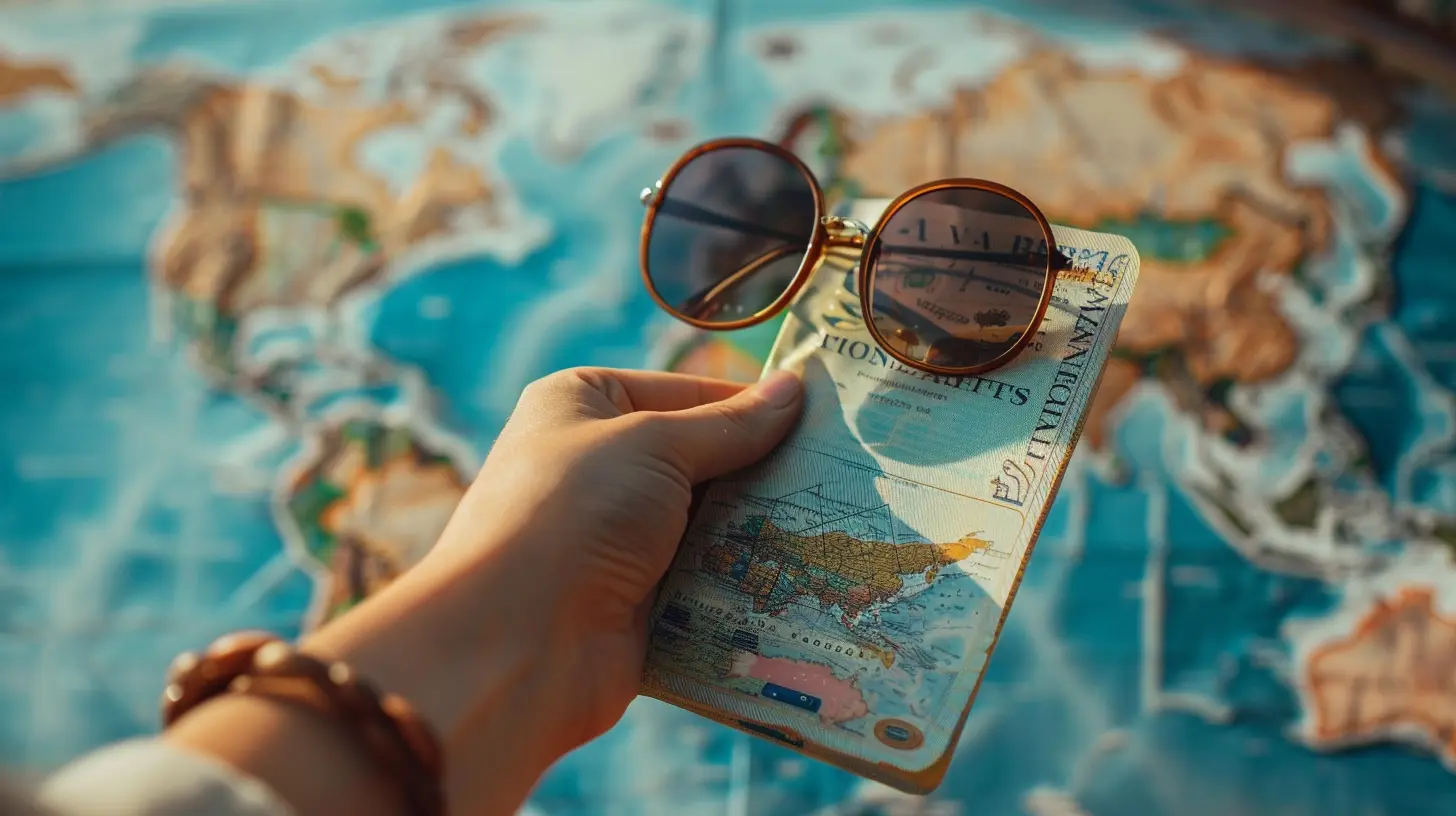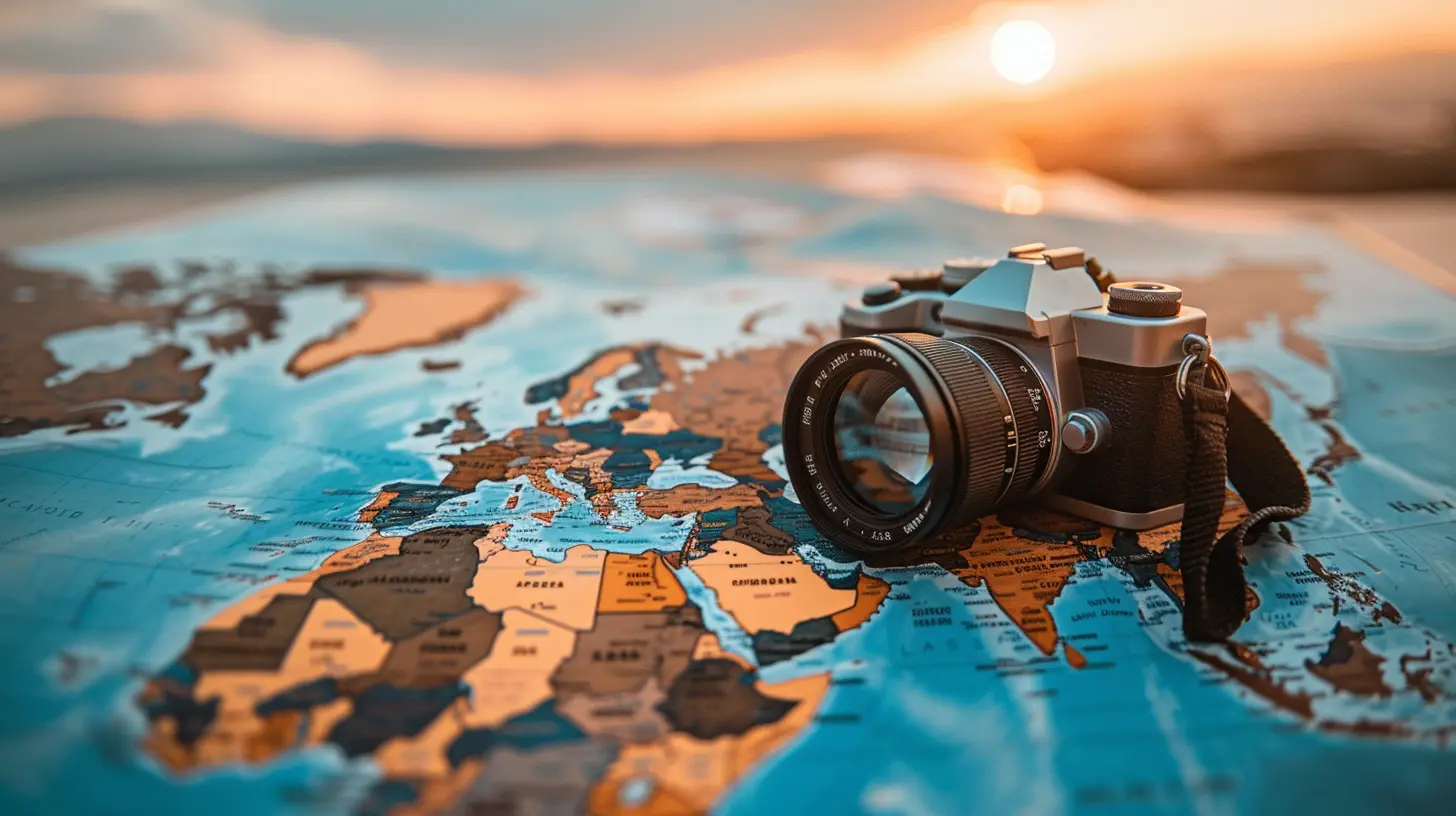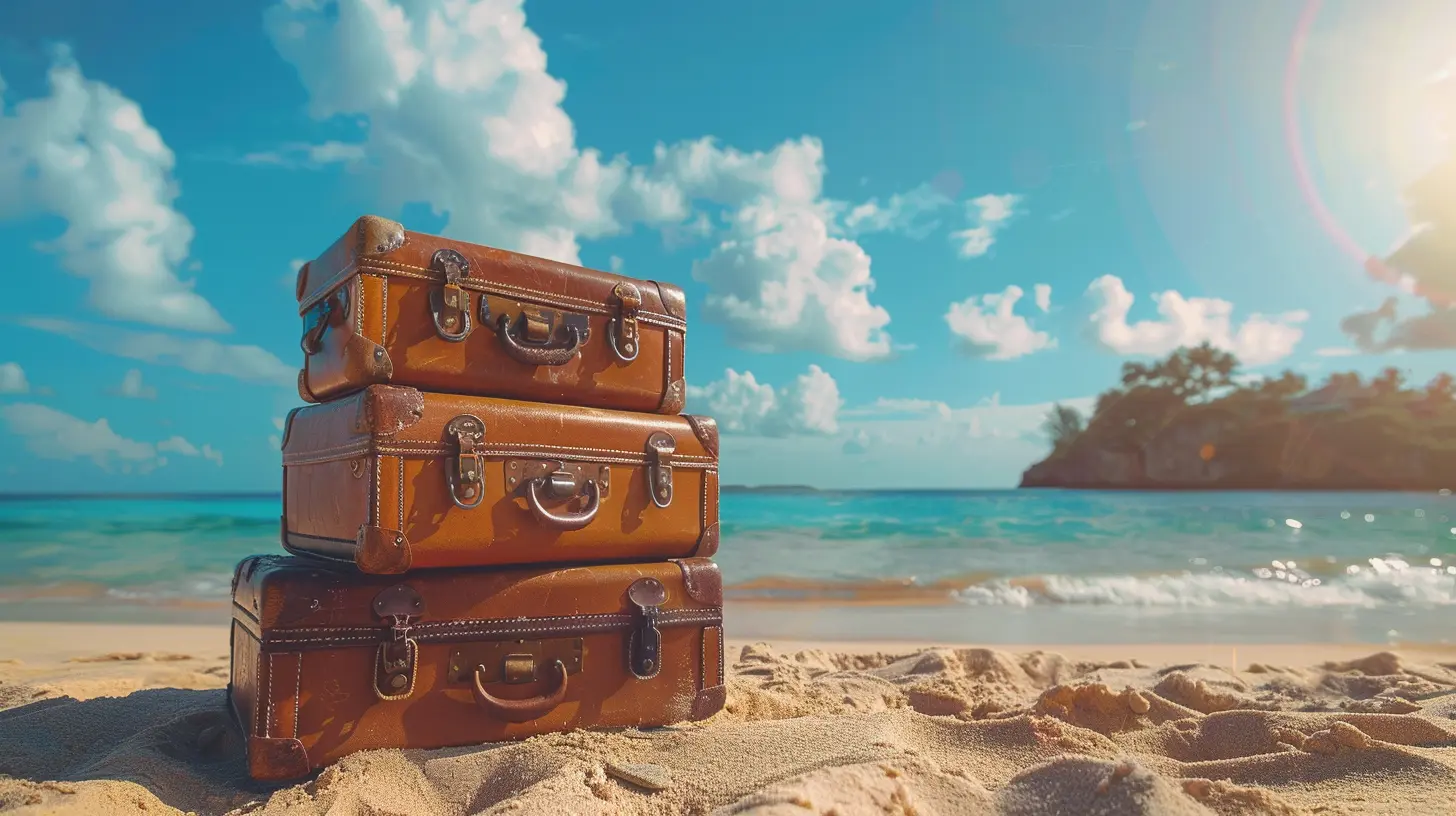Travel Insurance Scams: Are You Really Covered?
8 July 2025
So, you're finally taking that long-awaited trip to Bali, Tuscany, or maybe the mysterious lands of “Somewhere-Warm-That’s-Not-Here.” You've got your flights booked, your passport ready, and a suitcase full of half-swimsuits, half-snacks. And of course, you've purchased travel insurance because you're a responsible adult who doesn’t want to end up selling their kidney for a hospital bill in another country. But wait… are you really covered?
Let’s peel back the layers of the travel insurance onion and take a look at what’s cooking (spoiler: it might be a scam, and not the delicious Aperol Spritz you hoped for).
What Is Travel Insurance Supposed To Do?
Think of travel insurance as that friend who promises to always be there—but may ghost you the minute you need a ride at 3 AM.In theory, travel insurance covers you for:
- Trip cancellations or interruptions
- Lost baggage
- Medical emergencies abroad
- Delayed flights
- Natural disasters
- “Acts of God” (a divine cop-out, if you ask me)
You buy it hoping it’s your safety net. But sometimes, it turns out to be more of a decorative hammock that tears the second you sit in it.
Common Travel Insurance Scams That’ll Make Your Wallet Cry
Now let’s get into the juicy stuff. These are the sneaky tricks, shady fine prints, and corporate acrobatics that might be lurking in your policy while you’re sipping margaritas poolside.1. The “We Don’t Cover That” Trap
“Oh, sorry, your medical emergency isn’t covered because it happened on a Wednesday during a full moon while Mercury was in retrograde.”Okay, maybe not that dramatic—but close.
Many policies include a laundry list of exclusions, including:
- Pre-existing conditions (like your mildly annoying asthma)
- Extreme sports (surprise! That banana boat ride counted)
- Civil unrest (and no, they don’t count your in-laws visiting as unrest)
The worst part? They often hide these exclusions three scrolls deep in the terms and conditions. After buying the policy, you might realize that a lot of what you thought was “covered” was actually “covered only if Mars aligns with Venus.”
2. The “We Need a Receipt From 1987” Game
Lost your luggage? Filed a claim? Get ready to prove that you actually owned that pair of headphones via:- Original receipts
- Serial numbers
- Possibly a notarized note from your third-grade teacher
Insurance companies love to stall or deny claims based on “inadequate proof.” Spoiler alert: Nobody keeps a receipt from the airport gift shop for that overpriced neck pillow, Karen.
3. Cancel for WHAT Reason?
"Cancel for any reason" insurance sounds like the multiverse cheat code… until you read the fine print. It often:- Requires you to cancel 48+ hours in advance
- Reimburses only a portion (60–75%) of costs
- Doesn’t include some travel providers (yes, even if your cruise gets eaten by a kraken)
So if your cat starts giving birth and you cancel the night before your flight? Yeah, they might still say, “Sorry, that’s not an approved reason unless your cat is also a certified astronaut.”
4. The “Medical Network” Maze
You break your ankle in another country. Ouch. You go to the nearest hospital. Logical, right? But the insurance provider later says:“Well, you didn’t go to one of our preferred partner hospitals located 70 km from your hotel across a mountain range and guarded by an angry goose. So we can’t cover that.”
Pro-tip: Some policies only cover treatment at specific hospitals or clinics. Others offer “reimbursements” only after you jump through flaming hoops, submit 11 forms, and speak fluent legalese.
How These Scams Thrive: The Loophole Olympics
Insurance companies hire legal ninjas whose full-time job is to write policies you need a PhD and a telescope to interpret. They:- Use vague language (“reasonable costs” could mean $20 or $2,000)
- Tuck exclusions into footnotes of footnotes
- Rely on the fact that nobody reads the full 78-page policy. (Are you telling me you actually read all that before clicking “I agree”? Yeah, didn’t think so.)

Real Stories That’ll Make You Go “WAIT, WHAT?!”
“I Got Dengue Fever and All I Got Was This Denied Claim”
Emily went to Thailand. Got bitten by a mosquito with bad intentions. Hospitalized. Claimed insurance. Denied. Why?Turns out her insurance didn’t cover tropical diseases. You know, the kind that happens… in the tropics. Irony called, it wants a refund.
“Broken Tooth, Broken Dreams”
Jake chipped a tooth while eating local candy in Mexico. He filed a claim under “emergency dental.” Rejected. Apparently, it wasn’t an “accident”—just poor judgment in snack selection.How to Outsmart the Tricksters (Without Needing a Magic Wand)
You don’t have to be Sherlock Holmes or a grumpy lawyer to protect yourself. Just follow these sensible (and slightly sassy) tips.1. Read the Policy—Yes, Actually Read It
Set aside the time, grab some popcorn, and read that policy like it's the latest Netflix thriller. Focus on:- Exclusions
- Definitions (like how “emergency” is defined)
- Reimbursement limits
- Coverage zones (some policies exclude entire countries)
2. Compare Before You Commit
Don't just go with the first insurance link your travel booking site throws at you. Use comparison tools, read reviews, and check forums (Reddit is weirdly good for this).3. Look for Third-Party Reviews
Insurance companies tend to rate themselves 5 stars. Very trustworthy, totally not sketchy at all.Instead, check:
- Trustpilot
- Better Business Bureau
- Travel forums (Lonely Planet, TripAdvisor)
- Social media rants (they’re oddly informative)
4. Ask Questions and Be THAT Person
Call the insurance company and ask:- “Does this policy cover emergency medical care in [country]?”
- “Are pre-existing conditions covered?”
- “What if I decide last minute not to go?”
If they get vague or annoyed—red flag. Run faster than a tourist chased by a Thai street dog.
The Myth of “One-Size-Fits-All” Insurance
Different strokes for different folks, right? The same goes for travel insurance. You and your great-aunt going on a wine tour in Tuscany don’t need the same coverage as your brother backpacking through mosquito-infested jungles with only a GoPro and questionable choices.Some people need:
- Extreme sports riders (skydivers, scuba lovers, daredevils unite)
- Long-term travel coverage (digital nomads, we see you)
- Senior-specific insurance (shoutout to the seasoned globetrotters)
So don’t just grab the generic version. Tailor that policy like you’re fitting it for a red carpet.
When You Actually Get Covered (Miracles Happen!)
Let’s not be all doom and gloom. Sometimes, travel insurance works like a charm.✓ Flight cancelled due to bad weather? Reimbursed.
✓ Lost bag magically found after 4 days? Expenses covered.
✓ Appendicitis in Prague? Surgery paid for. (And yes, you now have a cool scar and story)
These are the success stories that make buying insurance worth it—just make sure you do the homework first so yours doesn’t end up in the scammer hall of fame.
Travel Insurance Red Flags: Watch Out!
Before you hit “Buy Now,” check for these sketchy signs:- Vague language like “may be covered”
- Super low prices that look too good to be true (because they are)
- No customer support number or only email contact
- Fine print longer than a 1990s phone book
If your gut says “hmmm,” trust it. Your gut is smarter than it pretends to be.
TL;DR - Before You Jet Off…
Let’s recap this whole travel-insurance-shenanigans situation, shall we?✅ Travel insurance is important.
❌ But not all is created equal.
💩 Some policies are basically glorified confetti.
🔍 Read the fine print like it’s your ex’s text messages.
☎️ Ask a ton of awkward questions.
💪 Don’t be afraid to shop around.
Buying travel insurance shouldn’t feel like navigating a jungle in a blindfold. Be smart, be specific, and don’t fall for the scams. Because the only surprise you should face on vacation is how strong the local cocktails are.
Final Thoughts: Protect Your Trip Like It’s Your Netflix Password
In the end, travel insurance should give you peace of mind—not a migraine. So don’t just click the first pop-up and assume you’re invincible. Dig deeper, question everything, and remember: the right policy is out there, somewhere between “bare minimum” and “fancy pants VIP.”Now go on, book that trip, pack those socks, and may your travels be covered and your claims be approved—without needing a detective and a magnifying glass.
all images in this post were generated using AI tools
Category:
Travel ScamsAuthor:

Shane Monroe
Discussion
rate this article
2 comments
George Wilkins
Great insights! Essential reading for all travelers!
November 8, 2025 at 3:28 PM

Shane Monroe
Thank you! I'm glad you found it helpful! Safe travels!
Jinx Pace
Travel can be unpredictable, and navigating insurance options can be overwhelming. It's crucial to stay informed and vigilant. Your peace of mind matters—protect yourself by understanding your coverage before you journey on.
July 22, 2025 at 3:00 PM

Shane Monroe
Absolutely! Being informed about your travel insurance options is key to avoiding scams and ensuring peace of mind while traveling. Stay vigilant and protect yourself.


